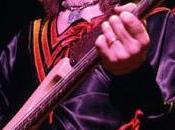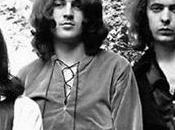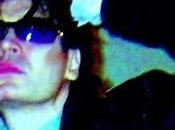 Per riprendere il filo dell’indagine del QuebecRockSampler, pubblico una chiacchierata che feci via mail con Michel Parent, webmaster e unico curatore del portale Quebec Pop. Appassionato, collezionista, musicofilo di prima categoria, Michel mi ha descritto il suo punto di vista sulla musica del Quebec e sul contesto socio-politico che ne ha favorito l’affermazione.Illustrando, a mio giudizio, alcuni tratti assai comuni con la scena italiana di fine anni ’60, che potrebbero, perché no, essere utili esempi per spiegare e comprendere meglio il progressive, non solo canadese.A voi più approfondite considerazioni…
Per riprendere il filo dell’indagine del QuebecRockSampler, pubblico una chiacchierata che feci via mail con Michel Parent, webmaster e unico curatore del portale Quebec Pop. Appassionato, collezionista, musicofilo di prima categoria, Michel mi ha descritto il suo punto di vista sulla musica del Quebec e sul contesto socio-politico che ne ha favorito l’affermazione.Illustrando, a mio giudizio, alcuni tratti assai comuni con la scena italiana di fine anni ’60, che potrebbero, perché no, essere utili esempi per spiegare e comprendere meglio il progressive, non solo canadese.A voi più approfondite considerazioni…***
The 60s pop music scene in Quebec seems to be much halfway between the European tradition and the "classic" styles imported from the United States. What are, in this context, the most important and original artistic personalities, which may also have contributed to the progressive rock developed in the 70s?
The 60's in Quebec saw the emergence of singer songwriters (Félix Leclerc, Jean-Pierre Ferland, Gilles Vigneault, Claude Léveillée, Robert Charlebois, etc) in parallel with many interchangeable pop artists. I mention "interchangeable" because most of them just translated songs that were already popular in the United States or England so there was little risk of success. This being said, as long as they were good looking and had some vocal quality, they would quickly record those copied songs and make hits with them. Many of them even re-recorded French songs from France and made Quebec hits out of them. Very little popular artists / groups were creating original music, even less anything that would be close to progressive rock music. Most of the bands that would eventually be part of the progressive rock movement started in the early 70s with musicians / singers that were not active in the 60s.
Gli anni 60 in Québec hanno visto l'emergere di cantautori (Félix Leclerc , Jean - Pierre Ferland , Gilles Vigneault , Claude Léveillée , Robert Charlebois) in parallelo con molti artisti pop intercambiabili. Dico "intercambiabili" poiché molti di loro semplicemente traducevano canzoni già popolari negli Stati Uniti o in Inghilterra e quindi c'era poco rischio di insuccesso. Detto questo, a patto che fossero di bell’aspetto e avessero qualche qualità vocale, registravano spicciamente quei brani, facendone delle hit. Molti di loro reinterpretavano anche canzoni francesi e ne tiravano fuori dei successi sul mercato del Quebec. Molti pochi artisti creavano davvero musica originale e ancor meno qualcosa di simile al prog. La maggior parte delle band che alla fine sarebbero diventate parte del movimento di rock progressivo iniziarono nei primi anni '70 con musicisti / cantanti che non erano ancora attivi negli anni '60 .
The '60s in Quebec to were a period of great social, political and cultural changes. How the era of "Quite Revolution" may have influenced the music, and what role has had music in these changes?
That's where the other "half" of the quebec mucicians/artists had an impact, the singer/songwriters were not as wildly popular as their pop counterparts in the 60s but their messages were indeed linked to the quiet revolution. It is the where quebecers in general severed the link with the very controlling catholic church, demanded more power from the controlling English community, good job opportunities, better education for everyone, the public health system and more. I would say that the "original" music of the time reflected the need from the younger generation cut the ties with the past and control their destiny. Some of the changes in the society may have influenced the music and vice versa, the music and songs from a Gilles Vigneault (as an example) fueled the need to control our own destiny as a distinct society from the rest of Canada (French vs English)
Ecco l’altra faccia della musica pop in Quebec: i cantautori. Non erano altrettanto famosi delle loro controparti "pop" negli anni '60, ma il loro messaggio era certamente legato alla Quite Revolution. Fu il momento in cui i “quebecchesi” in generale recisero il legame con il forte controllo esercitato dalla Chiesa cattolica, domandarono più autonomie rispetto al potere della comunità inglese che li governava, pretesero buone opportunità di lavoro, migliore istruzione per tutti ed un sistema sanitario pubblico. Direi che la musica originale del tempo rifletteva la necessità della generazione più giovane di tagliare i legami con il passato e di avere il controllo del proprio destino. Alcuni dei cambiamenti nella società possono aver influenzato la musica e viceversa; le canzoni di Gilles Vigneault, per esempio, hanno alimentato la necessità di possedere nelle nostre mani il nostro destino, come società distinta dal resto del Canada anglofono.
Why this passion of a whole generation of musicians (Harmonium, Maneige, Morse Code, Octobre…) for the progressive rock?
All these musicians were in their early 20s when they heard the Emerson, Lake & Palmer, Genesis, Pink Floyd, etc, and this is the music that inspired them. Many had studied music at the university and were also attracted by popular music. The clasissism of progressive rock, the complex arrangements, the much longer songs that allow for different movements within a single music piece was probably very attractive to them with their academic background. Progressive rock was moving far away from traditional rock and required complex musical skills which they had. It was a match made in heaven. I would add that the public in general was very attracted to anything progressive from around the world, Italy, the U.K., Germany, France, Sweden, so they were eager to see some local bands performing that type of music. There was also a very popular newspaper called "Pop-rock" where the journalists were very fascinated by progressive music in general and gave a lot of "published" space to the local bands.
Tutti questi musicisti vivevano, più o meno, i loro 20 anni quando ascoltarono Emerson, Lake & Palmer, Genesis , Pink Floyd: questa è la musica che li ha ispirati . Molti avevano studiato musica all'Università e furono anche attratti dalla musica popolare. Il classicismo del rock progressivo, gli accordi complessi, le canzoni molto più lunghe del normale che permettono diversi movimenti all'interno di un unico brano, sono stati probabilmente molto affascinanti per quelli di loro con una formazione accademica. Il Rock progressivo si stava muovendo lontano dai territori del rock tradizionale e richiedeva complesse abilità strumentali che molti di questi musicisti possedevano. È stata una partita giocata in cielo. Vorrei aggiungere che il pubblico in generale era molto attratto da qualsiasi produzione progressiva estera: italiana, inglese, tedesca, francese, svedese... quindi molti erano ansiosi di vedere band locali cimentarsi in quel tipo di musica . C'era anche un quotidiano molto popolare chiamato "Pop - rock" i cui giornalisti erano molto affascinati dalla musica progressive e che ha dato un sacco di spazio e diffusione alle band locali .
As an "external" and geographically distant observer, the music scene in Montreal (and Quebec in general) appears today - and appeared in the 70s - extremely varied. How appear, in your view, today, the pop and rock of Quebec?
I would say it is quite versatile, we have great jazz musicians, rock bands, singer songwriters, wonderful voices like Celine Dion, Isabelle Boulay, great creators like Cirque du Soleil and yes, still a good list of contributors to the progressive rock catalog, like Jelly Fiche, ExCubus, Miriodor, and many more. I did not live enough in other countries to be able to compare but I know I can dive in any musical direction and find a good Quebec band that performs in that space. Seeing how some of these artists are renowned around the world, I must admit that I believe we have one of the richest musical culture in the world for such a small population.
Direi che è abbastanza variegata, abbiamo grandi musicisti jazz, rock band, cantautori, voci meravigliose come Celine Dion, Isabelle Boulay, grandi creazioni come il Cirque du Soleil e sì, ancora una buona lista di contributori al catalogo del rock progressivo come Jelly Fiche , ExCubus , Miriodor, e molti altri. Non ho vissuto abbastanza in altri paesi per poter fare confronti, ma so di poter immergermi in qualsiasi direzione musicale e trovare una buona band del Quebec in ogni campo. Vedendo come alcuni di questi artisti sono rinomati in tutto il mondo, devo ammettere che credo abbiamo una delle scene musicali più ricche nel mondo, in rapporto ad una popolazione tanto ridotta.






